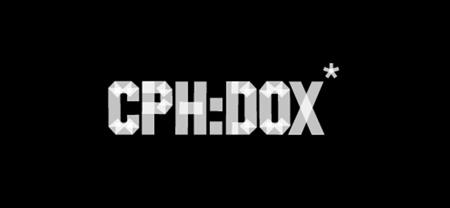There are 200 films, 15 concerts, 20 debates and a sea of parties and other events on this year's festival programme. "Political and provocative, exquisite and essential, fun and quirky – with an art edge," festival director Tine Fischer says.
"I think the festival's profile is becoming clearer year by year. We have always tried to test the boundaries of the documentary by being open to films and works coming from other traditions – art, fiction, experimental film. As this year's programme very clearly shows, it is in these intersections that interesting movements are taking place."
The CPH:DOX empire
The CPH:DOX phenomenon began in 2002 and has since sprouted a long line of initiatives and side-projects that calendar-wise extend far beyond the 10 hectic days of the festival and whose target groups are extremely varied.
DOX-ON-WHEEELS sends documentaries out to the farthest corners of Denmark, adding debates, live appearances and other events to the screening programme. DOC ALLIANCE is a partnership between five big European documentary festivals on an online portal providing access to 250 documentaries.
Alongside the festival’s film categories and competitions, attractive sub-brands are found, among them DOX:EXPANDED and DOX:CLUB, presenting anything from parties to concerts and seminars.
For industry professionals, DOX:MARKET gives priority access to buyers, festival programmers and curators. And there is DOX:FORUM – part market event and part learning lab for producers in alternative distribution channels for documentaries.
New initiative: DOX:LAB
This year CPH:DOX is introducing a new international talent program, DOX:LAB, combining a talent workshop with real documentary production. The project has limited funds but offers unlimited creative freedom. Top names from the international documentary film scene will be at hand as instructors.
The participating filmmakers are paired off, so that Nordic filmmakers will be collaborating with their peers from Burma, the Philippines, China, Lebanon, Palestine, Rwanda and Uganda.
In workshops and master classes, the participating filmmakers will receive instruction and sparring from top people in international production. All teams will receive 40,000 Danish kroner (approx. 5,400 euros) to produce their films, which must be finished by June 2010.
"The idea is to bring filmmakers of widely different production cultures and aesthetic approaches together in teams of two. This 'coming together' is the heart, the entire premise, of the project," Fischer says.
"There are obvious differences in approaches to production subsidies and production facilities in the different filmmakers' countries of origin. Coming out of a Danish or Nordic production culture, certain standards and requirements generally determine what films are produced. However, under such professional and formalised subsidy systems, a certain energy and willingness to take risks are sometimes lost. I hope the persistent energy and aesthetic courage many of the non-Nordic participants are bringing to the table will be an inspiration."
The participating filmmakers are very carefully selected and teamed up. "We had a great desire to challenge the invited artists on their methods and aesthetics. Most of the filmmakers we picked, because we are already familiar with their work and because we have great faith in their projects and development potential. We had some help picking international filmmakers from places where our knowledge is less well established," Fischer says.
"We tried to match up the filmmakers in ways that allow them to learn from each other and make interesting things happen. This could be teaming up filmmakers with comparable energy and attitude, like Michael Noer of Denmark and Khvan de la Cruz of the Philippines, or teaming up filmmakers that complement each other because their strengths are in different areas. For instance, we might match up a conceptually strong visual artist with a technically proficient filmmaker."
"It's been a lot of fun but also a huge challenge. I hope every participant will acquire a unique outlook and an international network they can use in the future," Fischer says in late October, shortly before it all breaks loose.
